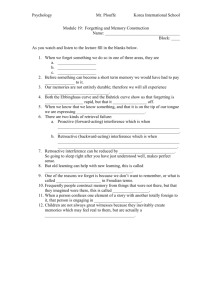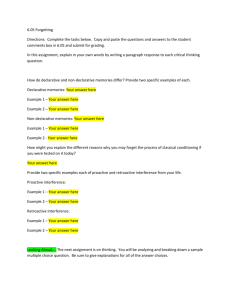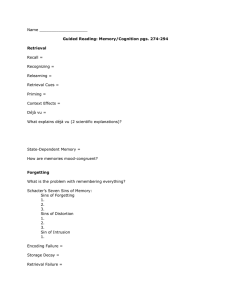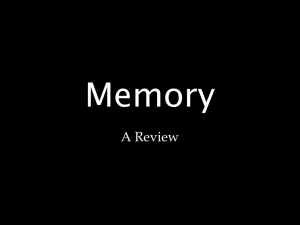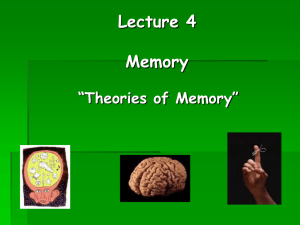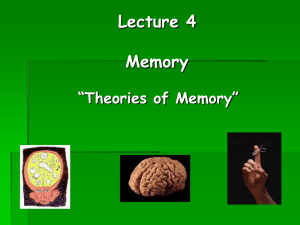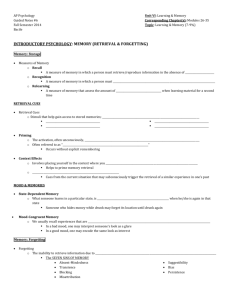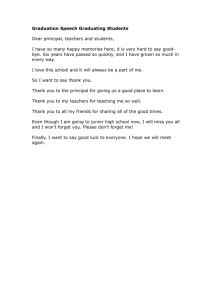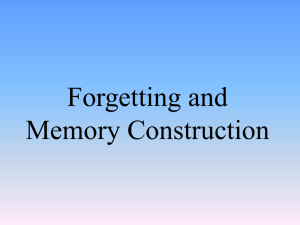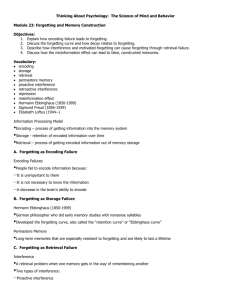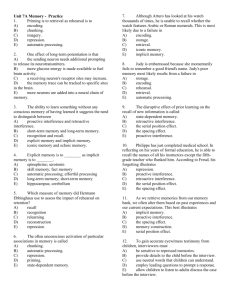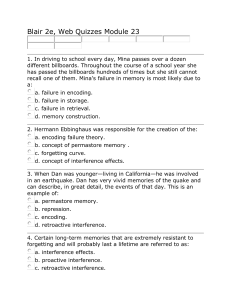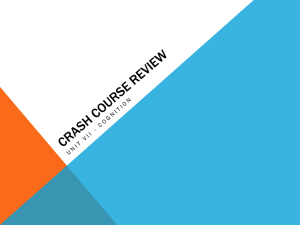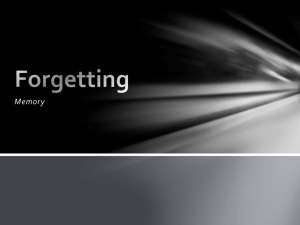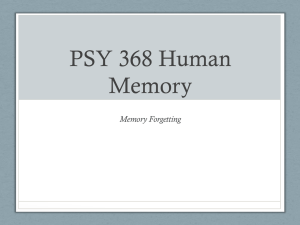Crash Course Psychology http://www.youtube.com/watch?v=HVWbrNls
advertisement
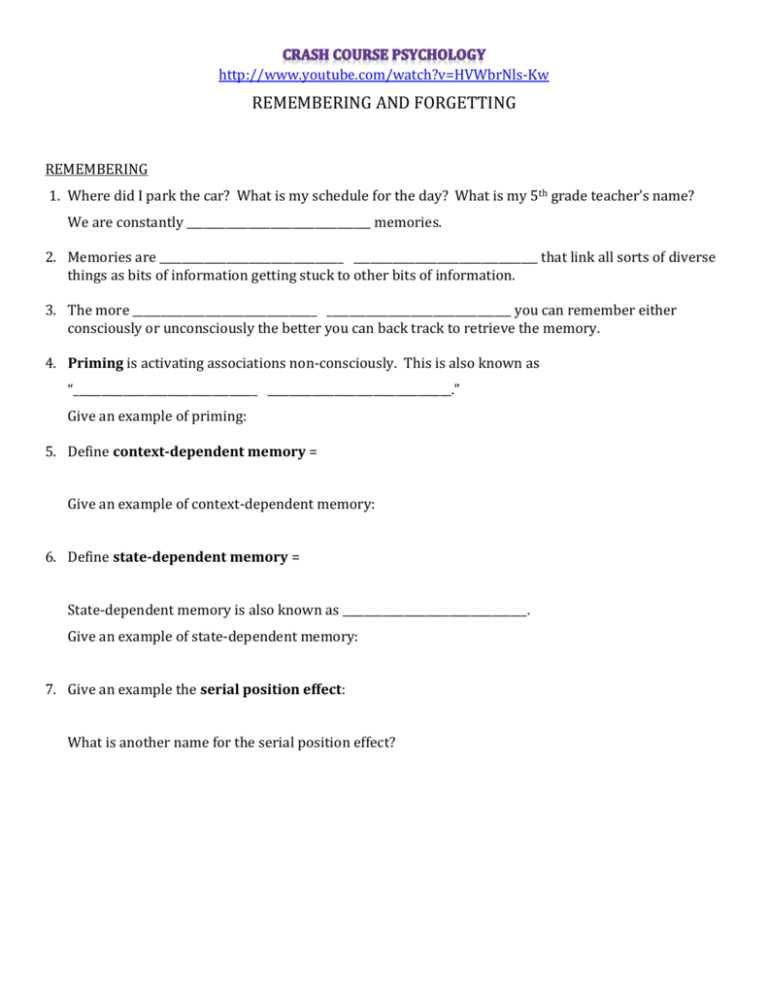
http://www.youtube.com/watch?v=HVWbrNls-Kw REMEMBERING AND FORGETTING REMEMBERING 1. Where did I park the car? What is my schedule for the day? What is my 5th grade teacher’s name? We are constantly _________________________________ memories. 2. Memories are _________________________________ _________________________________ that link all sorts of diverse things as bits of information getting stuck to other bits of information. 3. The more _________________________________ _________________________________ you can remember either consciously or unconsciously the better you can back track to retrieve the memory. 4. Priming is activating associations non-consciously. This is also known as “_________________________________ _________________________________.” Give an example of priming: 5. Define context-dependent memory = Give an example of context-dependent memory: 6. Define state-dependent memory = State-dependent memory is also known as _________________________________. Give an example of state-dependent memory: 7. Give an example the serial position effect: What is another name for the serial position effect? FORGETTING 8. What are the 3 ways we forget: 1. 2. 3. 9. Why do we fail to encode information? 10. Why do we experience storage decay? 11. Define proactive interference = Give an example of proactive interference: 12. Define retroactive interference = Give an example of retroactive interference: 13. The _________________________________ _________________________________ is incorporating misleading information into one’s memory of an event. 14. Name the psychologist, _________________________________, who discovered that eyewitnesses inadvertently tweak and reconstruct their memories after accidents or crimes. 15. _________________________________ _________________________________ is forgetting or misleading the source of a memory. 16. Our _________________________________ affect whether we remember or forget. How is that our emotions affect whether we remember or forget? 17. Memory is both a _________________________________ and a _________________________________ of past events. 18. Research supported by the Innocence Project found that _________% of Americans exonerated from prisons were convicted by mistaken eyewitnesses. Therefore, eyewitnesses are not always reliable.
